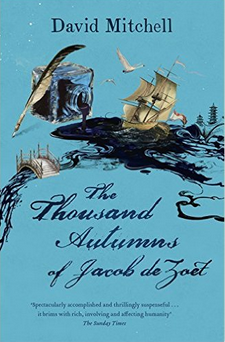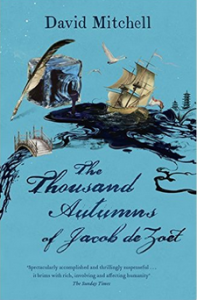An exercise in writing to prompt – the aim being to write on themes or questions you might not usually write about. Feel free to respond to the questions yourself in the comments below.
1. How would it be to see snow for the first time?
Incomprehensible, assuming one were already an adult and had no conception of it from TV or similar exposure. That’s hard to imagine in this day and age though. Maybe it would even be frightening. Children see new things all the time, and would be completely unfazed.
2. Which would you choose if you had to: to be deaf or blind? Why?
I have always thought that being blind would be more frightening. Having considered it seriously in the light of a friend who is deaf and now going blind, however, I think I’d prefer (tough choice, I know) to be blind. If you are deaf you are truly cut off from other people, unable to communicate effectively, to appreciate music, to listen to speech. I think this form of isolation would, in the final analysis, scare me more.
3. Which job could you never do? Why?
Work in an abattoir. I’m a vegetarian.
4. Is there a book you have read and would actively persuade others NOT to read?
’Testament of Youth’ by Vera Brittain. I was supposed to read as part of my A-level English course and could never got more than half-way. It was just plain self-absorbed diatribe about the Second World War. Technically, it doesn’t count then, since I haven’t read it all. I spent a long time with the belief, after this, that one should never leave a book unfinished, however bad it may be. Having written a couple, I know the time and effort it takes, and as a reader, I owe at least that to the author. Nowadays, however, possibly as a nod to my own mortality. I’m increasingly of the opinion that life is just too short to spend on mediocrity. If it doesn’t grab me quickly, I’m unlikely to persevere in the absence of strong recommendations to do so, from those I respect.
5. ‘In 1990, compared to the two previous decades, The US saw the highest juvenile arrest rate for violent crimes ever; teen arrests for forcible rape had doubled; teen murder rates quadrupled, mostly due to an increase in shooting. During those same decades, the suicide rate for teenagers tripled as did the number of children under fourteen who are murder victims.’
( ‘Emotional Intelligence’ Daniel Goleman Bloomsbury 1996.) Why would anyone want to bring children into this world?
Because of sunsets and sunrises. Because of the ocean. Because of the smell of the air after a storm. Because of a grandparent’s smile. Because of humanity’s inherent optimism. Because of the sound of laughter. Because of the dew on a rose on a spring morning. Because even if they fall in love just once, just fleetingly, just momentarily and have that feeling returned, then it is worthwhile.

